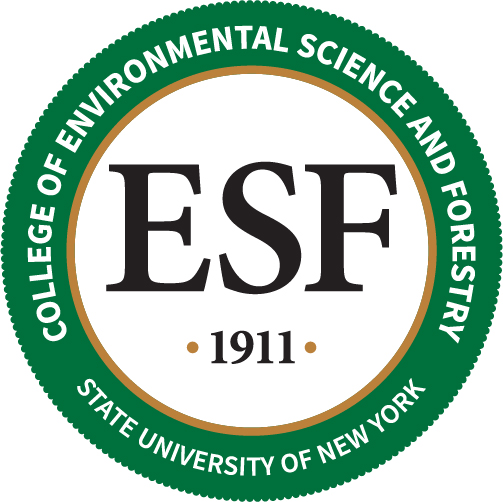Newswise — The SUNY College of Environmental Science and Forestry (ESF) is the first college in New York state to sign the #breakfreefromplastic pledge and the fourth nationwide, committing to develop a roadmap to a plastic-free campus by 2025.
This global movement hopes to “bring systemic change through a holistic approach tackling plastic pollution across the whole plastics value chain, focusing on prevention rather than cure, and providing effective solutions,” according to the organization’s website at www.breakfreefromplastic.org.
“It is issues just like this that drive ESF,” said David Amberg, ESF interim president. “At ESF, we practice what we teach. Our administration, faculty, staff and students are committed to investigating and addressing issues that challenge the health and sustainability of our environment. The zero-waste movement recognizes that we have only one planet and it is up to us to respond accordingly.”
To fully implement the pledge, the College must maintain its zero-waste task force, eliminate all non-essential, non-compostable, single-use disposable plastics with readily available alternatives, establish a purchasing policy that provides a framework for the long-term elimination of those products, and implement College-wide systems that facilitate the proper collection and management of non-disposable products.
ESF is well on its way to the goal. A grassroots-, student-led movement began years ago with five-gallon buckets that could be found scattered across campus with handwritten notes encouraging people to deposit compostable waste.
“The effort – and the premise behind it, which was to keep material out of landfills and incinerators – was definitely on the right track,” said Sue Fassler, ESF’s sustainable facilities manager. “Landfills are the third-largest producer of methane emissions in the U.S., accounting for 14 percent of emissions. Methane is a more potent greenhouse gas than carbon dioxide, with greater climate change and global warming potential.”
Mark Lichtenstein, the College’s chief sustainability officer, is a national leader in the zero-waste movement and has led zero-waste efforts in Brazil, the Caribbean, Central America, and in New York state. According to Lichtenstein, “The management of society’s discarded materials needs to be part of the climate change conversation. With this pledge and our current programs, it is very much ingrained within our climate change solutions portfolio.” Lichtenstein is also leading a group focusing on solutions to the management of society’s discarded materials as part of the Sustainable Development Solutions Network. The objective is to present a U.S. Decarbonization Policy Report to policymakers at the federal, state and local levels after November’s election.
Today, the five-gallon buckets have been replaced with a campus-wide composting and recycling program. The College has replaced every corridor bin with centrally located and consistently designed and labeled trash, recycling and composting bins. These bins can be found on every floor of every building. Office trash bins have been replaced with 1.15-gallon liner-less mini bins and office trash pick-up schedules have been altered. Prior to the rollout of the composting program and bin overhaul, the College was composting approximately 64 gallons of material a week. In January 2020, ESF was composting 1,600 gallons of material each week.
“Two critical pieces of the puzzle were involvement from the custodial/grounds staff and achieving campus-wide buy-in,” said Fassler. “A meaningful reduction in the amount of material that we produce and use on campus goes beyond creating robust compost and recycling programs. While these things are important, what we need is a cultural shift away from the expectation of constant convenience and heavy use of disposable products. Our students expect us to think in this holistic way and more and more, they are choosing to live their lives in this deliberate fashion. Their passion and example are helping to push the needle forward on campus.”
Shenequa Y. Perry, a sophomore environmental biology major from Truxton, New York, is the director of the Undergraduate Student Association’s SustainabiliTEAM. She got involved with sustainability at ESF because she wants to make a difference on campus and in the world.
“I am not content to just let things happen,” Perry said. “I feel I have a responsibility to improve the world around me whenever possible and address the huge problems facing my generation and the generations to come.”
“Eliminating plastic at ESF is important because it is a step in the right direction. We all know that plastic and other wastes are becoming a huge issue for the world. We, as an environmental college, must begin to take the first steps and practice what we preach and help to show the world that we can live without plastic and still flourish.”
MEDIA CONTACT
Register for reporter access to contact detailsRELEVANT EXPERTS
Mark Lichtenstein
Executive Operating Officer and Chief Sustainability Officer
SUNY College of Environmental Science and Forestry